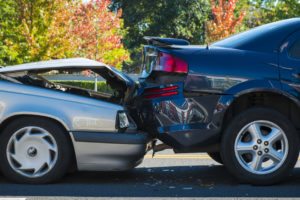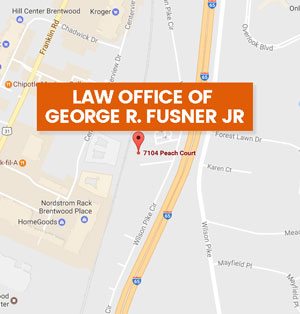A concussion is a traumatic brain injury (I refer to them as traumatic brain damage since that is what happens) that develops following a blow to the head. It is caused by the brain jostling around inside the skull, and it can cause dizziness, confusion, and other symptoms that range from mild to severe. Depending on the hardness of the impact, the brain can hit the skull and be torn.
Although concussions are the mildest form of TBI, they can cause life-threatening complications if left unchecked. Thus, it is essential that you seek medical treatment immediately if you think you sustained a concussion in a motor vehicle collision.
Suffering a TBI in a car accident is a lot more common than most people realize, and the consequences can be devastating. According to Forbes, collisions are one of the leading causes of TBI-related deaths among individuals between the ages 15 and 19.
If you sustained a TBI in a crash and you would like to discuss your case with a personal injury lawyer in Nashville, turn to the Law Office of George R. Fusner Jr. Mr. Fusner has a reputation for tough litigation and a strategy for winning substantial settlements and verdicts for his clients. Call 615-251-0005 or 800-427-8960 to schedule a free case evaluation.
What Are the Symptoms of a Concussion after a Car Wreck?
There are three main categories of concussions with varying degrees of severity, and it is important to remember that not everyone who sustains a concussion will lose consciousness. Since there are not necessarily any definitive telltale signs, it can be challenging to determine if someone has in fact suffered a concussion.
The symptoms of a concussion can range from minor to debilitating and might last for hours, months, or even years depending on the severity of the injury. If you experience any of these symptoms following a collision, seek immediate medical attention:
- Nausea and vomiting;
- Headache;
- Dizziness;
- Blurred vision;
- Poor concentration;
- An inability to retain new information;
- Sensitivity to sounds or lights;
- Poor coordination;
- Fatigue;
- Emotional outbursts;
- Anxiety; and
- Sleeping a lot more or less than usual.
How Do You Treat a Concussion?
The first step in treating a concussion is diagnosis. If you experience any of the above symptoms, your doctor might ask you questions to assess your current level of cognitive function and test your reflexes, balance, and coordination in order to provide an accurate diagnosis. If the head trauma was severe, your doctor may also order an MRI or CT scan to check for any brain bruising or bleeding.
There is no single treatment for a concussion; however, if your condition is severe, your doctor may want to monitor you closely for any changes. Otherwise, in the days and weeks following the incident, your doctor will advise you to take it easy. According to WebMD, this includes getting plenty of rest, avoiding drugs and alcohol, avoiding physically or mentally demanding activities, and taking pain medication as directed.
If you sustained a concussion or another serious injury in a car accident, contact the Law Office of George R. Fusner Jr. Mr. Fusner will evaluate your case, gather evidence, interview witnesses, and help you fight for the compensation you deserve.
Call 800-427-8960 or 615-251-0005 to schedule a free consultation with a car wreck attorney in Nashville. You can learn more about car accident claims in Tennessee by visiting USAttorneys.com.





